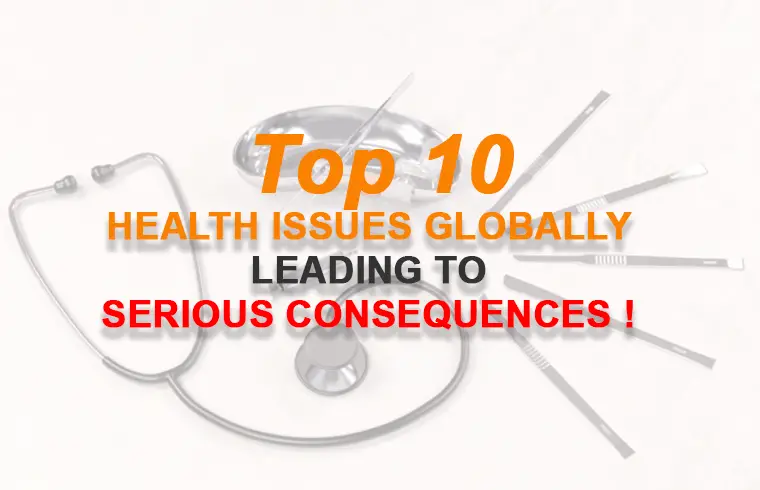
Today several health issues globally are becoming serious concerns for the world as a whole.
Apart from modernization and advanced technology to tackle health issues, world is at stake of several threats of health issues. These threats are now big challenges to cope with health issues globally.
Here are top 10 health issues globally, leading to serious consequences.
1- Antimicrobial Resistance
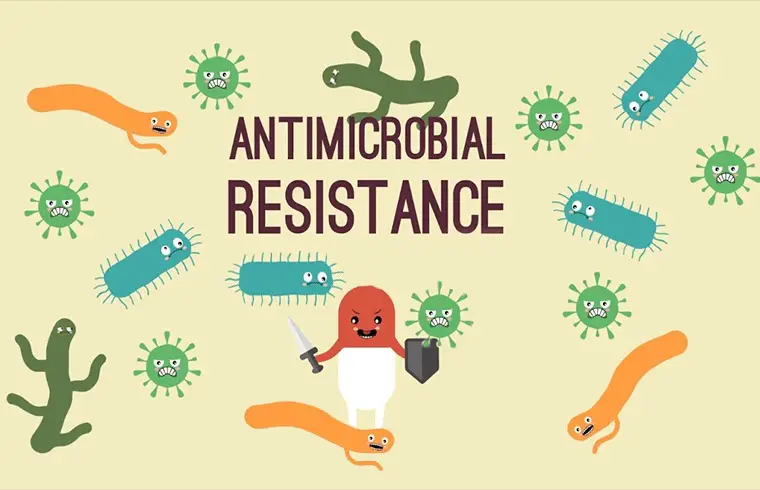
Antimicrobial resistance is the ability of bacteria, parasites, viruses and fungi to resist these medicines.
Antimicrobial resistance is one of top 10 health issues globally. One of the major reasons, a Medicine Expert said in an interview, “Hit and Trial use of antimicrobial agents resulted in antimicrobial resistance globally.”
He further said, “There are two aspects of this crisis, one is at healthcare practitioners’ end, and other is at patients’ end.”
At healthcare practitioner end, he said, “Practice of prescribing broad spectrum and multiple antimicrobial agents without investigation of which microorganism is causing disease, is common malpractice in low income countries.”
Even in some developing countries, qualified doctors are recommending directly 3rd or 4th generation antimicrobial agents without first going through 1st and 2nd generation. Similarly some doctors, unfortunately, not following full regimen (course of therapy).
They recommend antimicrobial for just 3 or 4 days while recommended therapy to eliminate micro-organism, must be more. This practice prepares micro-organisms to develop strong antimicrobial resistance.
He further said, “Often Patients don’t follow full regimen of antimicrobial agents, when they feel symptoms of disease recovered.”
All these factors are profound reasons for Antimicrobial Resistance which is now one of top health issues globally.
According to Word Health Organization, resistance to tuberculosis drugs is a formidable obstacle to fighting a disease that causes around 10 million people to fall ill, and 1.6 million to die, every year. In 2017, around 600,000 cases of tuberculosis were resistant to rifampicin – the most effective first-line drug – and 82% of these people had multidrug-resistant tuberculosis.
Tips:
- Always consult qualified Doctors and Pharmacists.
- Always follow the dosage regimen and complete the course of therapy even if you feel better.
- Doctors must follow recommended guidelines while prescribing antimicrobial agents.
2- Environmental pollution and climate change
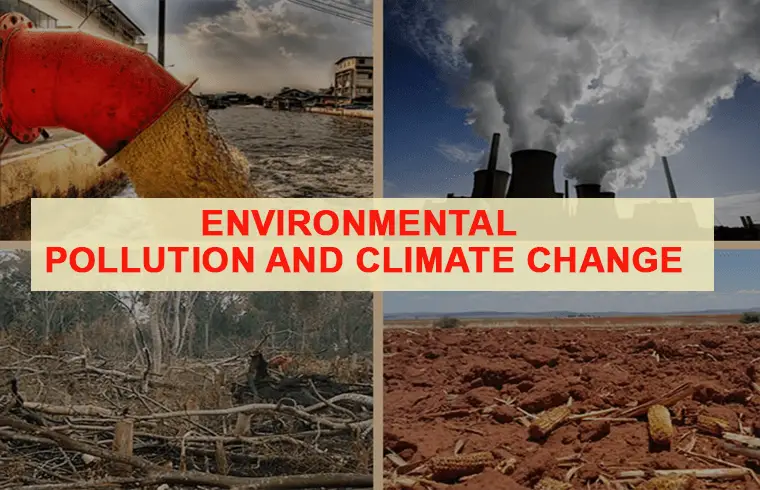
Various microscopic toxins pollute air that enter and damage to lungs and subsequently cardiovascular system and brain. It is estimated by WHO, Polluted air is killing seven million people annually with diseases, such as cancer, heart, stroke, and lung disease.
According to WHO, the primary cause of air pollution (burning fossil fuels) is also a major contributor to climate change, which impacts people’s health in different ways. Between 2030 and 2050, climate change is expected to cause 250,000 additional deaths per year, from malnutrition, malaria, diarrhea and heat stress.[1]
Black carbon is formed by the incomplete combustion of fossil fuels, wood and other fuels. Black carbon has a warming impact on climate 460-1,500 times stronger than CO2 per unit of mass.[1]
Tips:
- Use protective ways to avoid health issues due to air pollution.
- Minimize combustion of all types of fuels.
- Go for green energy sources, like, Sunlight, Wind, Water, etc.
- Discourage cutting down trees.
- Implant new plants as much as you can.
3- Physical inactivity and Malnutrition
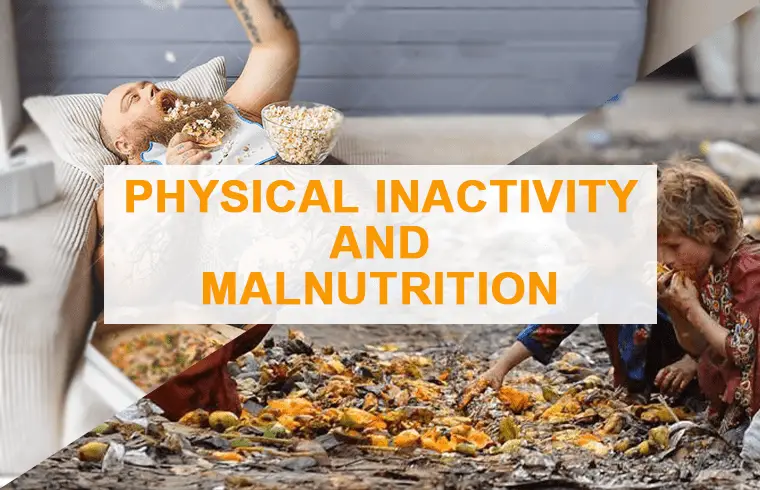
Computerized and automated processes are provoking humans to remain physically inactive. We want everything on one click. That’s not bad at all, actually; but what about our physical activities?
Sedentary lifestyle leads to several health issues like obesity, high cholesterol, high blood pressure and heart disease.
Similarly unhealthy diets and polluted water are major problems in low income countries.
Globally, at least 2 billion people use a drinking water source contaminated with feces.[2]
Contaminated water can transmit diseases such diarrhea, cholera, dysentery, typhoid, and polio. Contaminated drinking water is estimated to cause 485,000 diarrheal deaths each year.[2]
By 2025, half of the world’s population will be living in water-stressed areas.[3]
Around 9 million people die of hunger and hunger-related diseases every year, more than the lives taken by AIDS, malaria and tuberculosis combined.[3]
According to WHO, around 45% of deaths among children under 5 years of age are linked to under-nutrition.
Tips:
- Do some physical activity.
- Do productive work to earn money sufficient to fulfill needs.
- Take recommended diet for your health.
- Generally, all fruits and vegetables are nutritious, so eat them frequently.
- Take care of your calories intake and burn. For calculation of your calories you can use this free tool.
4- Non communicable diseases
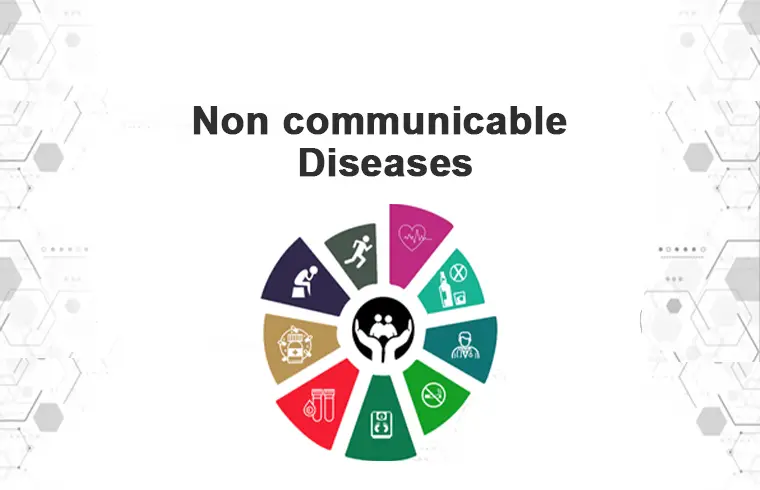
According to WHO, noncommunicable diseases, such as diabetes, cancer and heart disease, are collectively responsible for over 70% of all deaths worldwide, or 41 million people.
Number 70% of all deaths, is too much and is a major concern for whole world today.
There are some factors that cause these diseases which can be reduced; such as saying good bye to sedentary life style and avoiding overeating.
There must be a balance between calorie intake and calorie burned.
Unhealthy and ultra processed foods leads to such diseases.
Tips:
- Do some physical activity and exercises to avoid these diseases.
- Must eat optimum level of food- neither too low nor too much.
- Fulfill all the nutrients essentially required for your body.
- Avoid high fats and sugars in diet.
5- Vaccine hesitancy
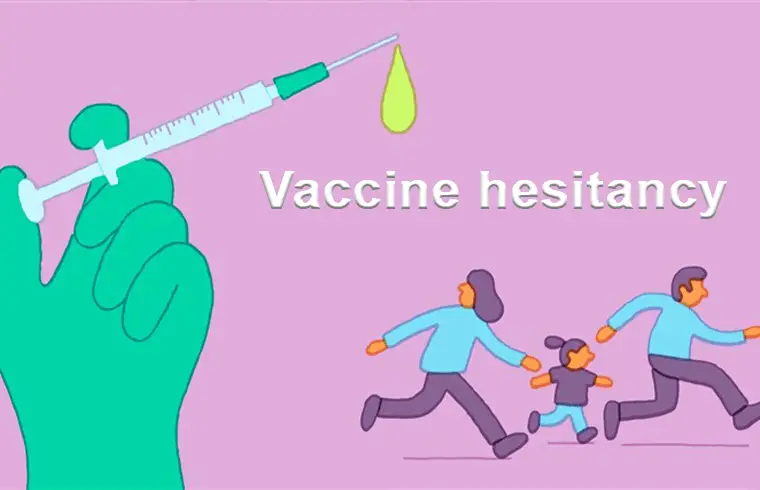
Vaccine hesitancy means the reluctance or refusal to vaccinate despite the availability of vaccines.
In some low income countries, the reluctance of refusal to vaccine is a big challenge for their governments because of false rumors about vaccine.
For example, in 2018 less than 30 cases of Polio were reported in Afghanistan and Pakistan. WHO is committed to eradicate the Polio disease from these countries.
Vaccines are currently preventing 2-3 million deaths a year, and a further 1.5 million could be avoided if global coverage of vaccinations improved.
Tips:
- Education is required to accept vaccine in areas where there is hesitancy.
- Identify false rumor maker and report government officials.
- Condemn it and spread awareness at all levels, social media, print and electronic media.
- Vaccine is cost effective for your health to prevent diseases.
6- HIV/AIDS
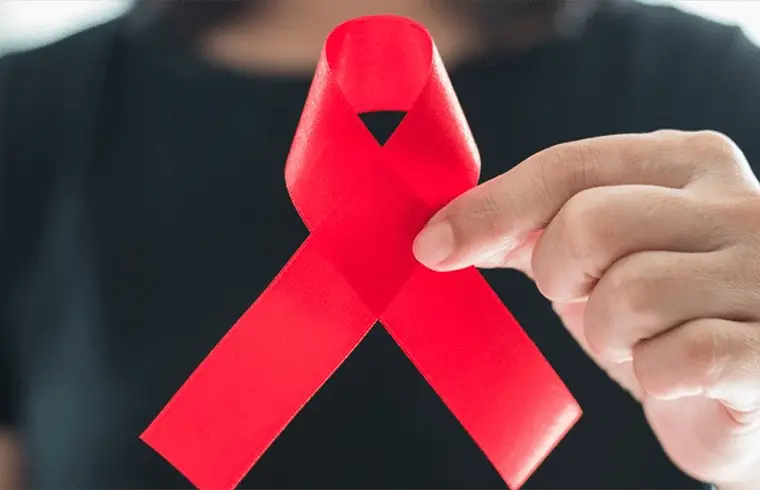
HIV- Human Immunodeficiency Virus causes AIDS- Acquired Immune Deficiency Syndrome, one of the most serious public health issues globally.
According to estimates by WHO and UNAIDS, 36.7 million people were living with HIV globally at the end of 2016. That same year, some 1.8 million people became newly infected, and 1 million died of HIV-related causes.
Tips:
- Use of condoms- male and female, can protect you from AIDS.
- According to WHO, male circumcision reduces the risk of female-to-male sexual transmission of HIV by around 60%.
- Avoid contaminated needles, blood etc.
- Always use sterile needle for injections.
- Use new blades when shaved from barber shop.
7- Overweight and Obesity
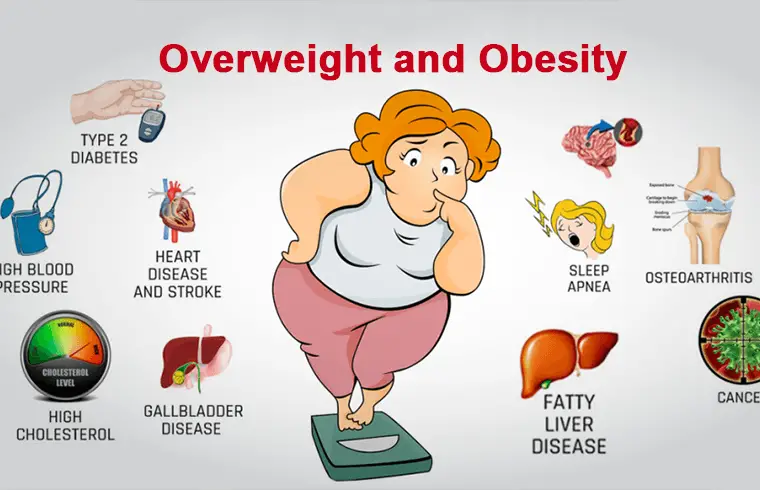
Obesity has reached epidemic proportions globally, with at least 2.8 million people dying each year as a result of being overweight or obese.[4]
Overweight and Obesity are linked to more deaths than those of with underweight.
Obesity and overweight welcome several diseases, like diabetes, blood pressure, heart diseases, high cholesterol levels, and several complications.
Tips:
- Balance calories taken and calories consumed by daily activity of livings.
- Sports and exercises are best revenge of Obesity.
- Follow healthy diet to avoid overweight. Here are some tips to reduce weight.
8- Tobacco use

Tobacco industry is one of the top sales industries in the world. In 2018, just one company, Philip Morris International, has sales of nearly 30 billion U.S. dollars.[5] While overall tobacco industry is about more than 140 billion U.S. dollars.
Use of tobacco leads to various cancers, such as cancer of the lung, larynx (voice box), mouth, esophagus, throat, bladder, kidney, liver, stomach, pancreas, colon and rectum, and cervix, as well as acute myeloid leukemia.
Even vaping health risks are substantially enormous. Anyhow Nicotine gums, patches and lozenges are less harmful than cigarette.
Tips:
- Avoid Tobacco use.
- Use smoking cessation therapies to get rid of this tobacco.
- Don’t be inspired from those who smoke, actually they are doing bad thing for themselves- as active smoking and for others-as passive smoking.
9-Mental Health

World is facing a big problem of mental illness today. Around 450 million people currently suffer from such conditions, placing mental disorders among the leading causes of ill-health and disability worldwide.[6]
Generally speaking, today, everybody seems to be suffering from Dementia. Mental stress and tension are common problems of every person above the age of 25 years.
Tips:
- Adapt positive thinking.
- A healthy body has a healthy mind. So focus on your fitness.
- Do regular exercise and some physical activity.
10- Substance Abuse

Harmful use of psychoactive substances, including alcohol and illicit drugs. It is also becoming a major problem in the world.
According to WHO, the harmful use of alcohol results in 3.3 million deaths each year. Some 31 million persons have drug use disorders.
Almost 11 million people inject drugs, of which 1.3 million are living with HIV, 5.5 million with hepatitis C, and 1 million with both HIV and hepatitis C.[7]
Tips:
- Don’t drinks alcohol because it is injurious to health.
- Don’t use psychoactive substances yourself.
- Consult with doctors and pharmacists before using these substances.





